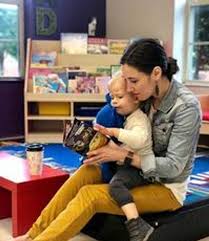
Introduction
Preschool education serves as a critical foundation for children’s lifelong learning and development. As the first structured educational experience, preschool prepares young children for their future academic careers and social interactions. In recent years, there has been an increased emphasis on the significance of quality preschool education, particularly due to its far-reaching impacts on childhood development and later success in life.
The Role of Preschool in Early Childhood Development
The preschool years, typically ranging from ages 3 to 5, are pivotal in a child’s cognitive and social development. Research indicates that children who attend high-quality preschool programs tend to outperform their peers in basic skills such as literacy and numeracy. Not only do they develop academic skills, but they also learn essential social skills, such as sharing, cooperation, and communication. A recent study published by the National Institute for Early Education Research (NIEER) highlights that children who attend preschool display improved emotional regulation and adaptability as they transition into primary school.
Current Trends and Changes in Preschool Education
Throughout the COVID-19 pandemic, the importance of early childhood education has been underscored. Many preschools adapted by implementing online learning models, which provided caregivers insights into their children’s learning styles. Additionally, there has been a notable rise in the inclusion of social-emotional learning in preschool curricula, aimed at nurturing resilience and empathy among young learners. Educational experts suggest that as we move towards a post-pandemic world, these hybrid models of education may continue to play a role in shaping preschool offerings.
Government Support and Initiatives
Governments across the UK have recognised the importance of preschool education and are taking steps to support access for all families. Initiatives to provide funding for disadvantaged families have been expanded, with the aim of ensuring that all children can benefit from preschool education, regardless of their socio-economic background. Recent announcements have highlighted plans to increase funding for early years education in the upcoming fiscal year, aiming to bolster the workforce and enhance educational resources available to preschools.
Conclusion
In conclusion, preschool education is an indispensable element of early childhood development, laying the groundwork for future academic success and personal growth. As educational policies continue to evolve, and parents increasingly recognise the importance of early education, preschools are likely to become even more vital in shaping the future of our children. For readers, understanding the significance of preschool can encourage engagement with local educational resources and advocate for quality education initiatives that benefit the broader community.
You may also like

The Importance of Study in Education Today

The Importance of Continuous Learning in Today’s Society

The Vital Role of Nurseries in Early Childhood Development
SEARCH
LAST NEWS
- Remembering Wendy Richard: The Promise to Co-Star Natalie Cassidy
- How Did Anglian Water Achieve an ‘Essentials’ Rating for Mental Health Accessibility?
- Shai Hope Leads West Indies in T20 World Cup Clash Against South Africa
- What We Know About Weston McKennie: Future at Juventus and Past at Leeds
- What We Know About the Upcoming Live Nation Antitrust Trial